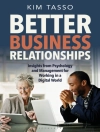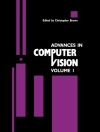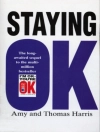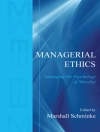Presenting a fresh approach to child and adolescent therapy, this book identifies five principles at the heart of the most potent evidence-based treatments–and shows how to apply them. Clinicians learn efficient, engaging ways to teach the skills of
Feeling Calm,
Increasing Motivation,
Repairing Thoughts,
Solving Problems, and
Trying the Opposite (FIRST) to 5- to 15-year-olds and their parents. FIRST principles can be used flexibly and strategically in treatment of problems including anxiety, posttraumatic stress, depression, and misconduct. In a convenient large-size format, the book features 37 reproducible parent handouts, decision trees, and other clinical tools. Purchasers get access to a companion website where they can download and print these materials, plus Spanish-language versions of selected parent handouts.
Tabella dei contenuti
1. All about FIRST
2. Using FIRST and the FIRST Decision Trees to Treat Anxiety/OCD, Posttraumatic Stress, Depression, and Misbehavior
3. Beginning Treatment
4. Clinician Guides: Facts about the Problems Treated with FIRST
5. Help for Caregivers: Handouts on the Problems Treated with FIRST
– Think FIRST: Planning Treatment, Case by Case
– Summary Overview of the FIRST Treatment Program
6. Using the FIRST Principles: Feeling Calm
7. Using the FIRST Principles: Increasing Motivation
8. Using the FIRST Principles: Repairing Thoughts
9. Using the FIRST Principles: Solving Problems
10. Using the FIRST Principles: Trying the Opposite
11. Skill Units for Continuing Treatment, Boosting Engagement, and Ending Treatment
Appendix I. Published Studies Testing Independent Effects of the Five FIRST Principles
Appendix II. Sample Progressive Muscle Relaxation Script
Appendix III. Using FIRST for Panic Attacks and Tic/Habit Behaviors
Appendix IV. Frequently Asked Questions about Using FIRST in Clinical Practice
Circa l’autore
John R. Weisz, Ph D, ABPP, is Professor of Psychology in the Department of Psychology at Harvard University, and at Harvard Medical School. He is a past president of the Society of Clinical Child and Adolescent Psychology and the International Society for Research in Child and Adolescent Psychopathology. Dr. Weisz is a recipient of the James Mc Keen Cattell Lifetime Achievement Award from the Association for Psychological Science, the Klaus Grawe Award for the Advancement of Innovative Research in Clinical Psychology and Psychotherapy from the Klaus Grawe Foundation in Switzerland, and the Sarah Gund Prize for Research and Mentorship in Child Mental Health from the Child Mind Institute’s Scientific Research Council. He served for 8 years as President and CEO of the Judge Baker Children’s Center, an affiliate of Harvard Medical School. Dr. Weisz’s research involves development and testing of psychotherapy programs for children and adolescents, particularly transdiagnostic approaches designed for implementation in clinical service settings, plus meta-analyses to characterize and inform psychotherapy research. His website is
https://weiszlab.fas.harvard.edu.
Sarah Kate Bearman, Ph D, is Assistant Professor in the School Psychology Program of the Department of Educational Psychology at The University of Texas at Austin (UT Austin), and Assistant Professor in the Department of Psychiatry at UT Austin’s Dell Medical School. A clinical child psychologist, she conducts research on factors that support the adoption, implementation, and sustainability of effective mental health services for children and families in complex, low-resource service settings. Dr. Bearman is especially interested in incorporating patient and provider perspectives in the development of interventions to increase goodness of fit, understanding the impact of training and supervision/consultation on psychotherapy, and increasing access to mental health services in nontraditional settings such as schools, child care, and primary care. Her website is
https://sites.edb.utexas.edu/leap.












